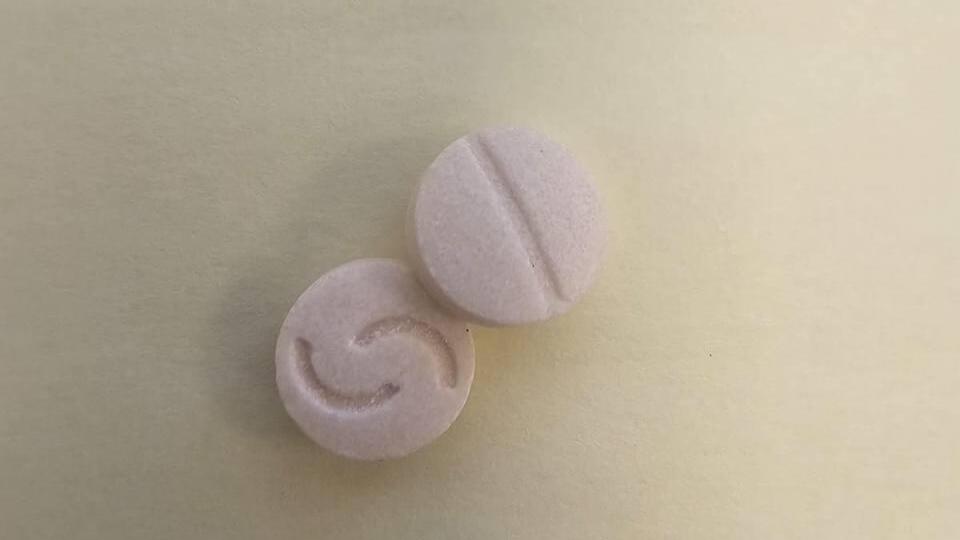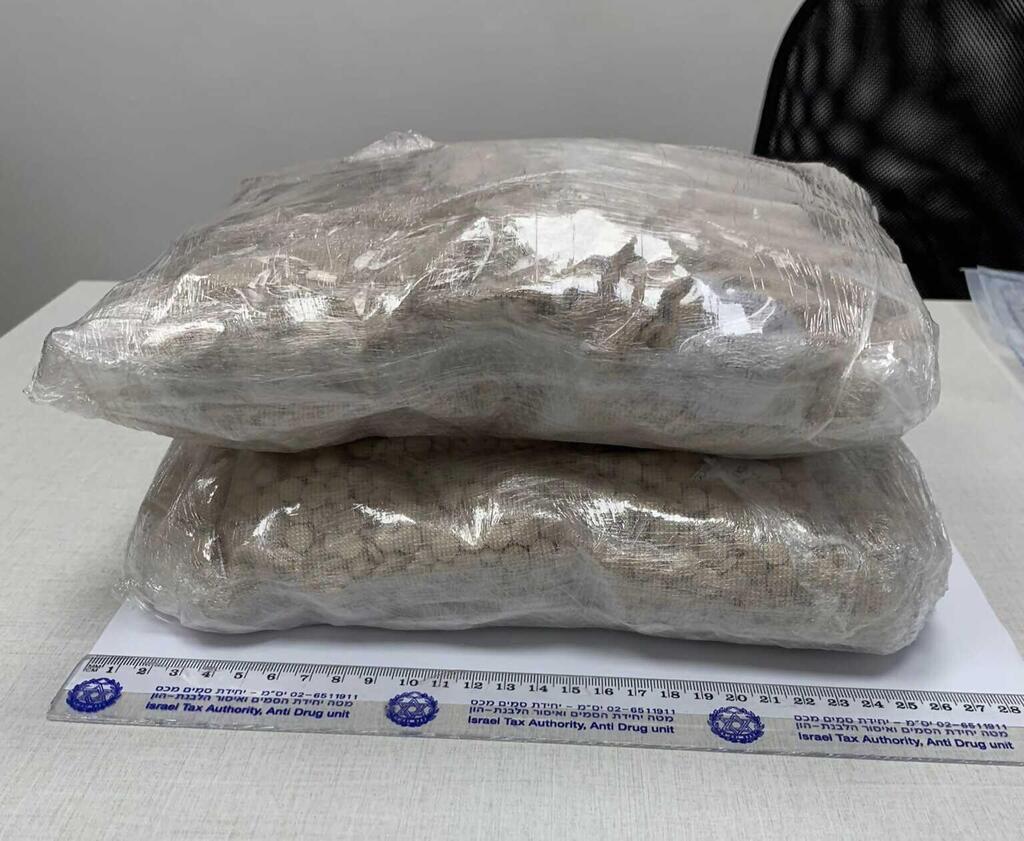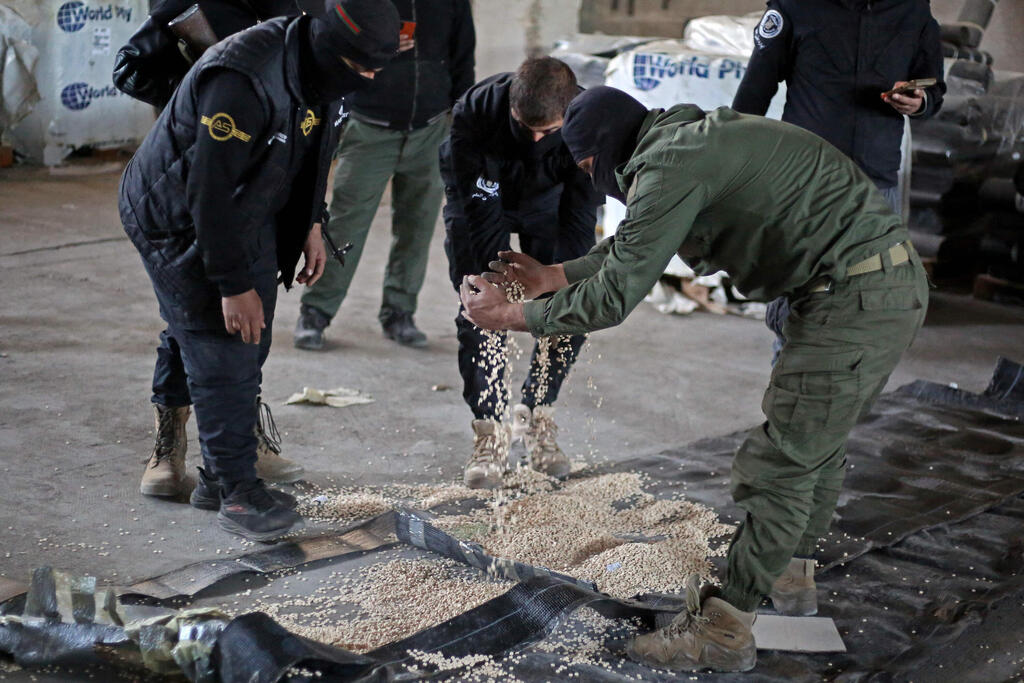Getting your Trinity Audio player ready...
This drug goes by many names, like street names, lab names, and others used worldwide. It is most commonly known as Captagon, but in Israel, it has earned a particularly grim nickname: the "Nukhba's Drug". The name stems from reports that Hamas terrorists used it before carrying out the October 7 massacre. For years, shipments of the drug were seized at border crossings, primarily en route to the Gaza Strip, while Israeli authorities knew exactly what it was being used for. But now, and almost under the radar, it is also spreading within Israel itself, rebranded as "MMC" and marketed as a 'party drug', often without users realizing what they are taking.
Captagon, which produces psychedelic effects similar to other dangerous synthetic drugs, is typically smuggled from Muslim countries. It seeps into the streets and slowly takes a toll on users, especially given its potential for extreme side effects. "This drug itself isn't new", explains a security expert familiar with the issue. "Its chemical name is fenethylline. 'Captagon' is just one of its commercial names. It was originally developed in the early 1960s as a medication for children with attention disorders. It reduces fatigue and suppresses appetite, boosts self-confidence, and generally enhances performance, to the point that in the 1990s, some Olympic athletes used it illegally to improve their athletic abilities."
By the mid-1980s, the drug’s high addiction potential became evident, leading to its ban. "It turned out to be highly addictive, even compared to other well-known drugs", the expert says. "Once it was outlawed, it started flooding the streets illegally and became known as ‘poor man’s cocaine'. It’s a synthetic stimulant that costs much less than cocaine - less than half the price - because it is made in substandard, unregulated labs. That, combined with aggressive marketing, makes it so widespread."
"Substitutes are always dangerous"
Dr. Uriel Bertler, Israel police chief inspector and an expert at Israel’s National Narcotics Laboratory, warns that Captagon produced on the black market is counterfeit and differs significantly from the original medication that was sold before its ban, making it highly dangerous. "Its active ingredient is amphetamine, a powerful stimulant classified as a controlled substance", Bertler explains. "We seize tens of thousands of tablets every year."
Get the Ynetnews app on your smartphone: Google Play: https://bit.ly/4eJ37pE | Apple App Store: https://bit.ly/3ZL7iNv
What distinguishes Captagon from other amphetamine-based drugs, according to Bertler, is its signature marking - a pill engraved with two half-moons on one side and a single score line on the other.
In recent years, the main hubs of Captagon production have been Syria and Lebanon. Under the Assad regime, Syria became a Captagon powerhouse, generating at least $5 billion annually under the leadership of the dictator’s brother, Maher Assad, who commanded the Syrian military’s Fourth Armored Division.
The drug has been marketed to terror organizations, as it enhances physical endurance, reduces the need for sleep and food, and helps combatants suppress fear and pain, allowing them to fight for extended periods. "It makes terrorists stronger," the expert explains, pointing to Captagon found on ISIS terrorists involved in the 2015 Paris attacks. "The effects are short-term, but significant. We saw this on October 7."
Captagon had already made its way into Israel before Hamas’ attack on October 7, 2023, the expert says, "mainly in the Arab community, East Jerusalem, and Bedouin tribes in the south." Large quantities were also smuggled into Gaza, where it was used by terror operatives, including tunnel diggers, and later, as reports indicate, by the elite Nukhba terror force that led the October 7 massacre.
However, after the fall of Assad, Syria’s new leadership launched a crackdown on Captagon production, shutting down or destroying several drug factories. "As that door began to close, Captagon components started trickling into Israel through Allenby Bridge and other high-risk border crossings," the security source says.
A police source confirms an increase in Captagon smuggling but stresses that "we’ve been familiar with it for at least 20 years. On the street, slang matters when referring to the drug as ‘poppers’ or ‘date rape drugs’, but you won’t find these names in Israel's drug ordinance. The law deals with chemical components, like amphetamine."
Still, he acknowledges that "we are seeing more attempts to bring substances labeled as Captagon into Israel, primarily via Egypt and Jordan. But like with all illicit drugs, we don’t always know their exact composition, or whether they contain other harmful substances. Someone might end up in the hospital in critical condition, claiming they took Captagon, but lab tests can’t always confirm if it was Captagon or just a counterfeit version branded as such. What we do know is that substitutes are always dangerous. And the substitutes used to produce 'Captagon' indicate that this drug is particularly hazardous."
R., another security official, says he has encountered Captagon during border seizures. "It’s not yet being smuggled in massive quantities by every means possible," he says. "It’s not an extreme phenomenon yet, but it’s a drug we’re aware of, and there are attempts to sneak it in, sometimes in very creative ways."
"Most traffickers conceal the drug inside vehicle parts, such as structural beams or hidden compartments", he explains. "For example, tens of thousands of Captagon pills were found stashed inside pickup truck beams. They also hide tablets inside body cavities, including highly intimate parts. But those are usually smaller quantities".
Several notable seizures illustrate the scope of the smuggling attempts:
December 2023: Palestinian women from the Dheisheh refugee camp were caught at Allenby Bridge crossing with approximately 4 kg (9 lbs) of Captagon hidden in bags strapped to their bodies during a customs inspection.
December 2020: Authorities at the Nitzana border crossing intercepted more than 75,000 Captagon pills destined for a Palestinian importer in Gaza, alongside nearly 1,000 kg (2,200 lbs) of tobacco. The pills were hidden inside plastic pipes concealed within fabric rolls.
Recent seizures at Kerem Shalom: Captagon pills were discovered inside women’s shoe heels during an inspection of cargo arriving from Turkey.
In 2020 at the Nitzana border crossing, security forces seized around 400,000 Captagon tablets disguised as part of a seemingly legitimate shipment intended for a Palestinian importer in Gaza.
"I went outside to calm down"
Captagon is typically consumed as a pill that dissolves in the stomach within minutes, with its effects kicking in soon after. According to testimonies, it is more harmful than cocaine because it can induce aggression, emotional detachment, extreme focus, and even cruelty. Its effects also set in more quickly and intensely.
In recent months, Israeli hospitals have treated patients suffering from severe side effects after taking what they believed to be "party drugs" but turned out to be Captagon. The primary danger lies in the fact that users often have no way of knowing what they are ingesting, something that D., a 32-year-old from central Israel, learned firsthand.
"I've been using drugs for years, mostly with friends," says D. "Party drugs, coke, ecstasy, 'Doctor', all kinds. I first heard about Captagon a few months ago when I was at a club, and our regular dealer brought us what he called 'special ecstasy.' We’re adventurous, so we trusted him and tried it."
D. says he wasn’t particularly concerned about the risks. "Drugs aren’t healthy to begin with, so we weren’t really worried about the consequences. But this one felt different from the stimulants we’re used to. Ecstasy usually kicks in within 30 to 60 minutes, but whatever our dealer gave us worked almost instantly. It was like a mix of a stimulant, similar to coke, but as intense as ecstasy, and it felt different."
Get the Ynetnews app on your smartphone: Google Play: https://bit.ly/4eJ37pE | Apple App Store: https://bit.ly/3ZL7iNv
He describes the experience as unsettling. "I could feel in my body that something was off. It didn’t feel calming; it created this buildup of powerful energy that needed an outlet. A lot of my friends felt the same, while others didn’t notice any difference and just enjoyed it. I left the club with another friend because I didn’t want to release that energy there. I went outside to calm down, and after about an hour, the feeling completely passed."
Later, D. decided to look into what he had taken. "I did some research and realized there’s a new street drug circulating in clubs called Captagon," he says. "When I read about it, it terrified me. Since then, I won’t touch anything unless I’m 100% sure what it is. I have good friends who were hurt on October 7, and it scares me to think that I put something in my body that’s connected to the people who carried out that attack."
Should Israelis be worried?
Uri Marantz, creator of the film King Khat (about an Israeli chemist who becomes a notorious drug baron after inventing a legal psychoactive drug from Cathinone), believes the concern over Captagon is overblown. He argues that the drug is far from taking over Tel Aviv’s streets or becoming a widespread phenomenon in Israel.
According to Marantz, users have no real way of knowing whether they are actually taking Captagon or something else, and it remains unclear whether the pills smuggled into Israel are the same as those consumed by Hamas’ Nukhba terrorists.
"The reality is that Captagon isn’t any better or worse than other stimulants, which, generally speaking, aren’t ‘good’ drugs," he says. Marantz also downplays its role in the horrors of October 7. "Captagon may have helped terrorists stay alert, but it didn’t alter their mindset or make them more violent than they already were."
The extent of Captagon’s distribution in Israel, and the rise in smuggling it into Israel remains unclear.
Dr. Aviva Delaricha-Carmon, Police Chief Superintendent and head of the National Narcotics Laboratory, notes that while authorities seized a large shipment of amphetamine last year - around 50,000 pills - other drugs remain more prevalent. When asked which substances police are seizing most frequently, she points to the rise in ketamine smuggling. "Ketamine comes in tablet form, but more often as a powder," she explains. "There’s also been a significant increase in cocaine, MDMA, methamphetamine pills, and the so-called ‘date rape drugs'."






